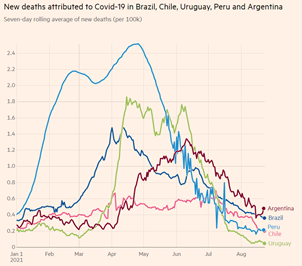Hard to deny that travel bans are now a key tool in the pandemic prevention toolbox. Fascinating to see how #COVID19 upended prior global health conventional wisdom about travel bans for epidemics and pandemics
Policies have evolved alongside the pandemic. In Jan @WHO recommended against travel restrictions when it declared coronavirus a public health emergency of international concern who.int/news-room/deta…
In Feb/Mar, WHO advise against the "application of travel or trade restrictions to countries experiencing COVID-19 outbreaks” and recommended “health measures be implemented in ways that minimize unnecessary interference w international traffic and trade”
who.int/news-room/arti…
who.int/news-room/arti…
WHO’s recommendations were in line with the previous consensus among public health experts that bans do more harm than good, and with prevailing interpretations of the International Health Regulations
For example, an editorial in late Feb stated that travel restrictions against China during COVID-19 violated international law, and “evidence belies the claim that illegal travel restrictions make countries safer” thelancet.com/journals/lance…
Even so WHO officials still recommended caution at that time: “restrictions must be based on a careful risk assessment, be proportionate to the public health risk, be short in duration, and be reconsidered regularly” thelancet.com/journals/lance…
However, travel bans were widespread already by then. 100% of countries had travel restrictions in place and 72% of countries had “placed a complete stop on international tourism” by April unwto.org/news/covid-19-…
Travel bans have been part of the success in countries suppressing the virus. Here is New Zealand’s Jacinda Ardern announcing "far-reaching and unprecedented" restrictions and touting the “toughest border restrictions of any country in the world” in March. abc.net.au/news/2020-03-1…
Studies show travel restrictions can reduce cross-border spread. Research from Australia: “Travel restrictions were highly effective for containing the COVID-19 epidemic in Australia during the epidemic peak in China and averted a much larger epidemic” academic.oup.com/jtm/article/do…
Another study: “travel restrictions…may decrease the rate of case exportations if enacted during the early stages of the epidemic… This obstruction of importation events will be critical to preparing an effective public health response” pnas.org/content/117/13…
But not all travel bans are created equal. Bans on travel from China early in the pandemic, were mostly too little too late and, at most, only delayed exportation of the virus into other countries. science.sciencemag.org/content/368/64…
Supporting this notion, an analysis of countries with and without early bans on travel from China found no association with countries’ subsequent outbreak size and timing. thinkglobalhealth.org/article/tracki…
Travel bans implemented haphazardly and/or incompletely offer little prevention value. The March ban on Europeans entering the US for example, did not help and might have made things worse washingtonpost.com/world/national…
If a country already has widespread community transmission, the relative importance and effectiveness is reduced. The risk from imported cases can become dwarfed by the risk from domestic transmission.
https://twitter.com/trvrb/status/1238643287818244098
Because the pandemic is a dynamic situation, countries can be “net importers” or “net exporters” of disease at different times as they successfully or unsuccessfully suppress the virus. So, the relative effectiveness of travel bans can shift.
Since the April peak the has been a slow easing of travel restrictions. In July 40% of countries worldwide eased restrictions. However, over half of countries have kept their borders completely closed to tourism unwto.org/news/tourism-r…
Particularly in countries with low levels of transmission, travel bans remain in place to help prevent further surges or “second waves” of disease driven by imports.
According to @IATA there are only a few countries that *do not* currently place bans on international passenger arrivals, such as Brazil, Egypt, Mexico, Serbia, Tanzania, and Ukraine
iatatravelcentre.com/international-…
iatatravelcentre.com/international-…
So there is a complex interplay between a shifting epidemiological picture across countries, and differences in effectiveness of policies as implemented by countries. Raises broader questions about international cooperation and tourism in a world where many borders are closed
For example, with the epidemic in the US out of control at the moment, Americans are currently blocked from entering most countries around the world at the moment. cnn.com/travel/article…
For its part, WHO released new guidelines a few days ago, providing recommendations on how countries could ease travel restrictions safely: “gradual lifting of travel measures…should be based on a thorough risk assessment… who.int/news-room/arti…
“…taking into account country context the local epidemiology and transmission patterns, the national health and social measures to control the outbreak, and the capacities of health systems in both departure and destination countries”
Seems like a fruitful area for more study as travel circumstances are changing. Under what conditions do travel bans make sense? What are the effects of imposing/relaxing bans?
• • •
Missing some Tweet in this thread? You can try to
force a refresh












